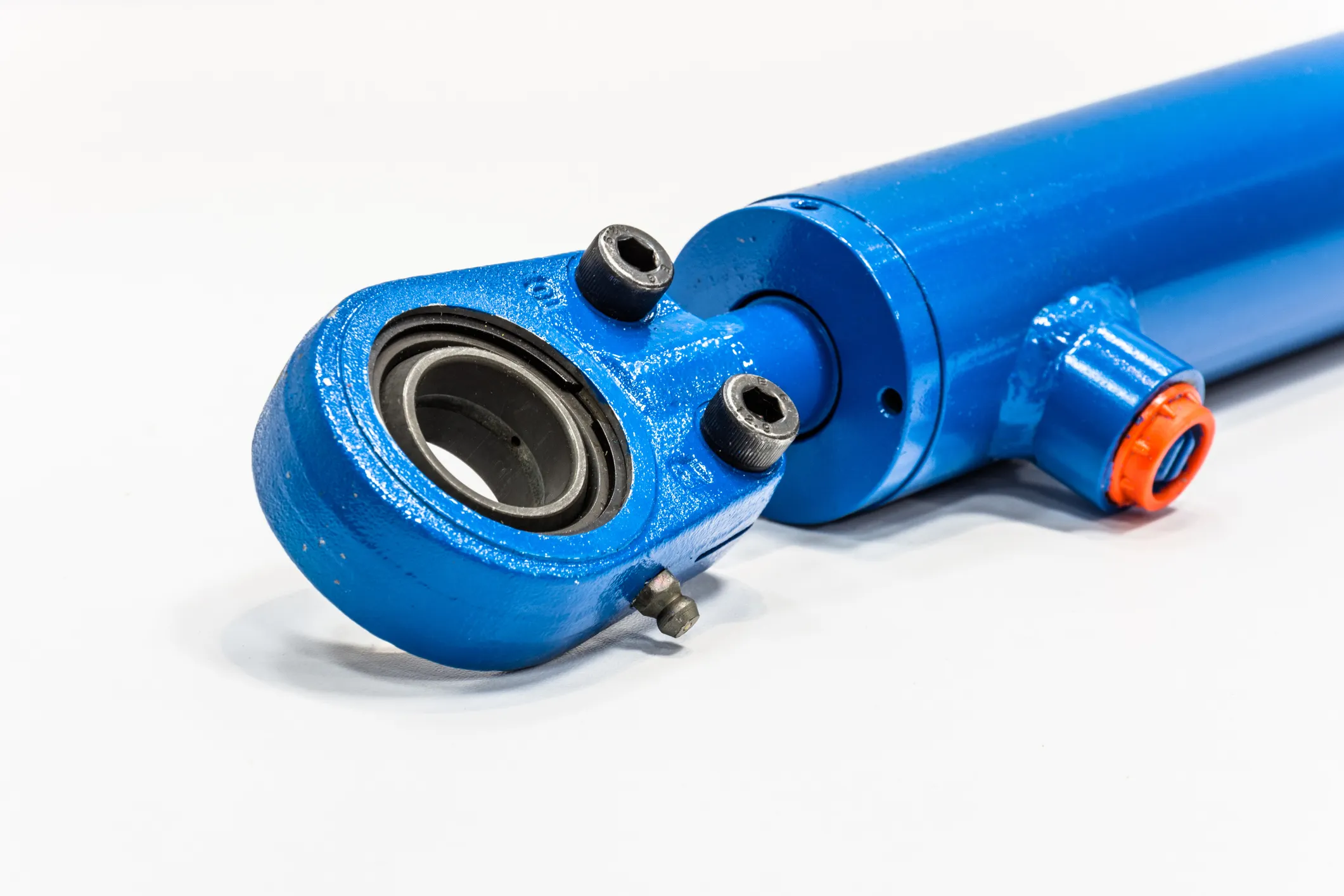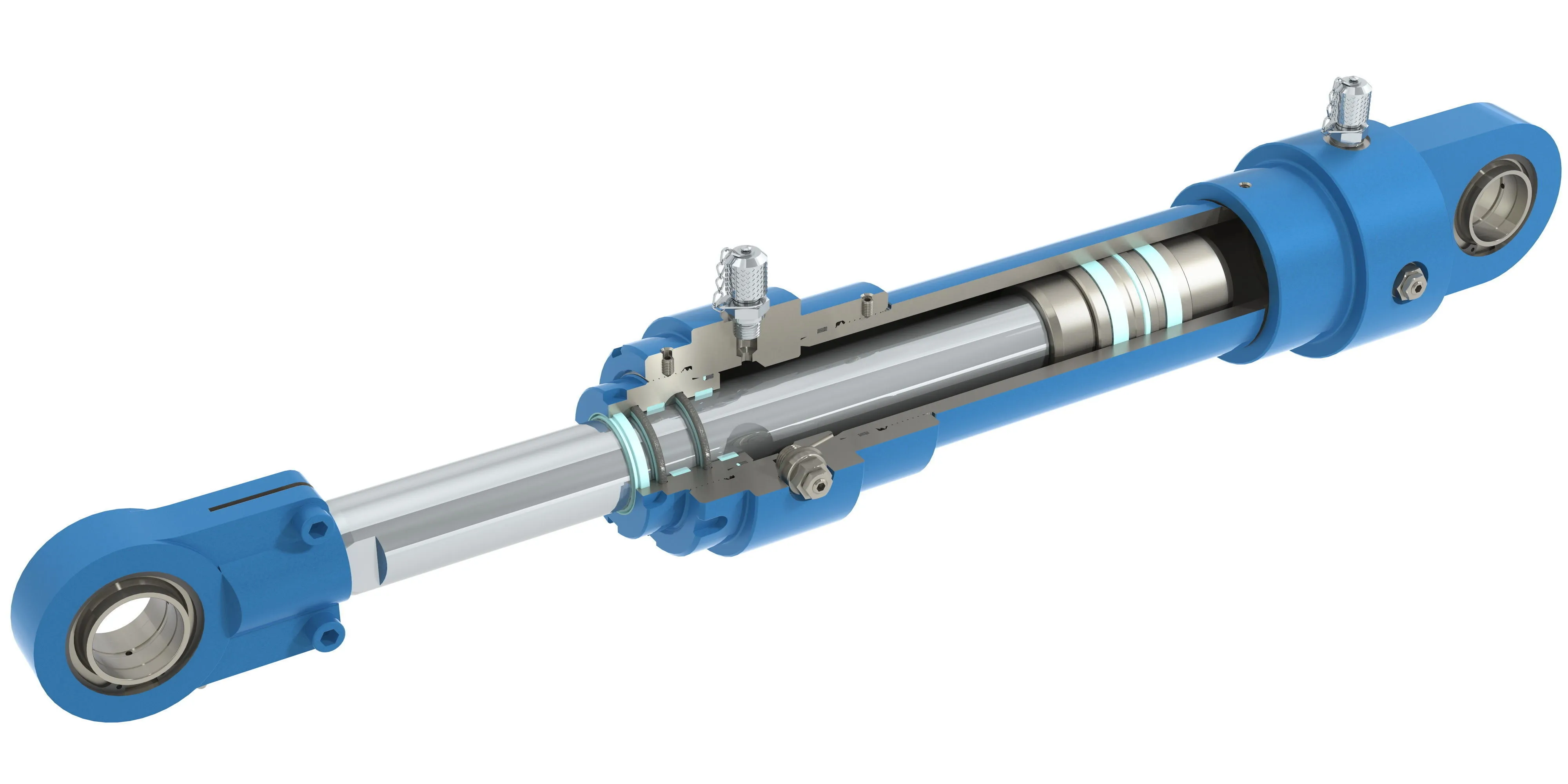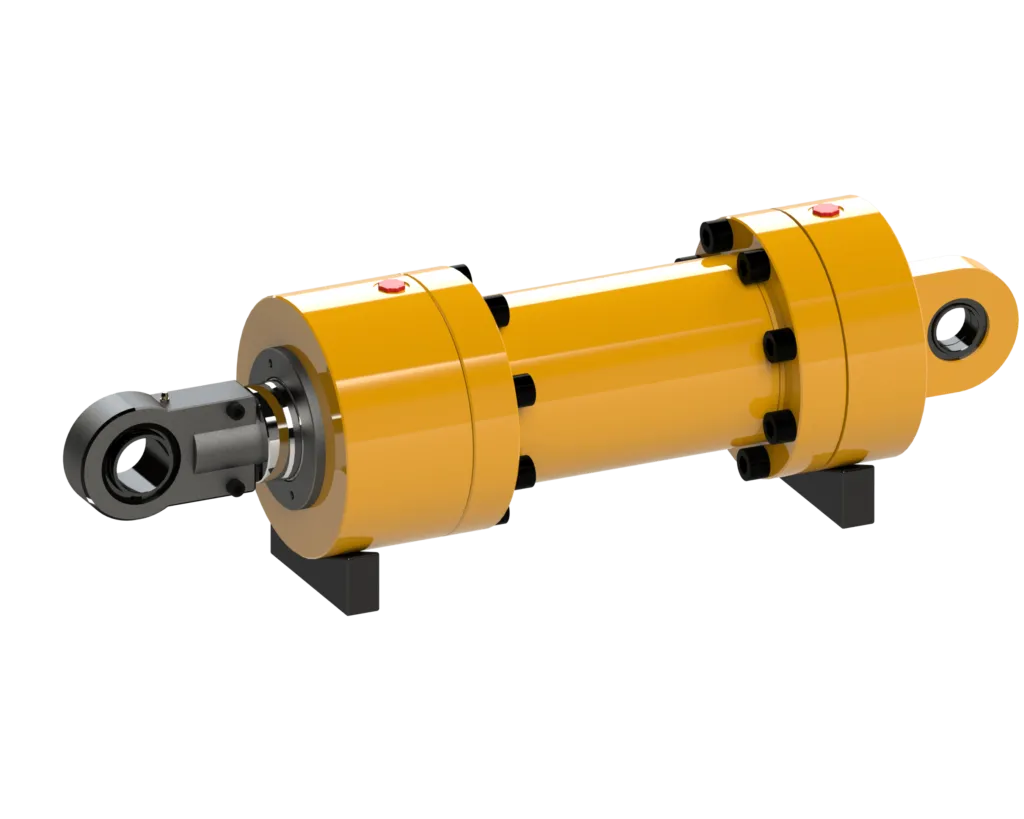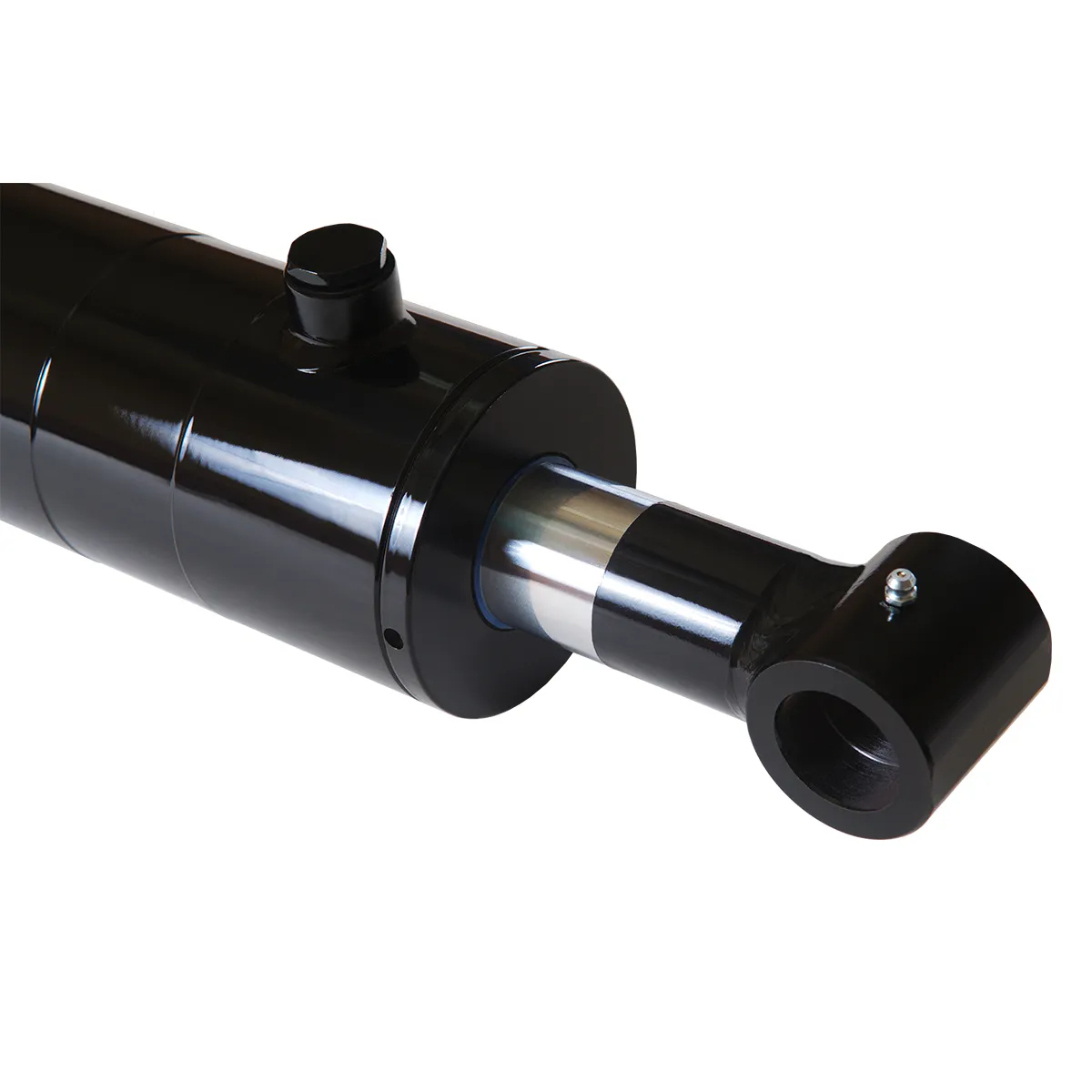The Comprehensive Guide to Mill-Type Welded Hydraulic Cylinders
Introduction
In the world of hydraulic systems, the mill-type welded hydraulic cylinder plays a crucial role in providing the necessary force to move heavy loads effectively. This article will delve into the key aspects of mill-type welded hydraulic cylinders, including their design characteristics, working principles, types, advantages, performance characteristics, applications, maintenance, and more.
Design Characteristics of Mill-Type Welded Hydraulic Cylinders
When it comes to designing mill-type welded hydraulic cylinders, various components play a vital role in ensuring their strength, durability, and performance. These components include the shell, inner cylinder, piston, and other key elements. The manufacturing process emphasizes the use of welding technology to fabricate cylinder components meticulously.
Welding Technology Considerations
Welding technology is crucial in ensuring the structural integrity of mill-type welded hydraulic cylinders. The welding process must meet stringent quality standards to guarantee the strength and durability of the cylinder components. Proper welding techniques are essential to prevent leaks, cracks, or other defects that could compromise the cylinder’s performance.
Working Principle of Mill-Type Welded Hydraulic Cylinders
The working principle of mill-type welded hydraulic cylinders revolves around the conversion of hydraulic energy into mechanical force. These cylinders use pressurized hydraulic fluid to move the piston within the cylinder, generating linear motion to actuate various equipment and machinery.
Types and Configurations of Mill-Type Welded Hydraulic Cylinders
There are three main types of mill-type welded hydraulic cylinders, each with its unique configuration and application. Understanding the differences between these types can help in selecting the right cylinder for a specific hydraulic system.
Single-Acting Cylinders
Single-acting cylinders exert force in one direction, relying on an external force or spring to return to their original position.
Double-Acting Cylinders
Double-acting cylinders can apply force in both directions, making them versatile for various industrial applications.
Telescopic Cylinders
Telescopic cylinders consist of nested sections that extend and retract, offering a longer stroke length compared to traditional cylinders.
Advantages of Mill-Type Welded Hydraulic Cylinders
The advantages of mill-type welded hydraulic cylinders include high load capacity, long stroke length, rugged durability, precise control, and compact design. These features make them ideal for demanding applications that require reliable and efficient hydraulic performance.
Rugged Durability
Mill-type welded hydraulic cylinders are known for their robust construction, capable of withstanding harsh operating conditions and heavy loads without compromising performance.
Precise Control
With precise control over motion and force, mill-type welded hydraulic cylinders offer accurate positioning and movement for enhanced operational efficiency.
Performance Characteristics of Mill-Type Welded Hydraulic Cylinders
The performance of mill-type welded hydraulic cylinders is influenced by factors such as working pressure, load capacity, speed, responsiveness, and cylinder size. Selecting the right cylinder size and configuration is crucial for optimal performance in a hydraulic system.
Working Pressure Range
Mill-type welded hydraulic cylinders typically operate within a specific pressure range to ensure safe and efficient performance in various applications.
Load Capacity
The load capacity of a hydraulic cylinder determines its ability to handle heavy loads and withstand external forces without failure.

Applications of Mill-Type Welded Hydraulic Cylinders
Mill-type welded hydraulic cylinders find widespread use in industries such as heavy equipment, industrial machinery, mining operations, construction, and agricultural equipment. Their versatility and reliability make them indispensable in various machinery and equipment applications.
Heavy Equipment
In heavy equipment applications, mill-type welded hydraulic cylinders provide the necessary force to lift, push, or pull heavy loads with precision and control.
Industrial Machinery
Industrial machinery relies on mill-type welded hydraulic cylinders for efficient operation, ensuring smooth movement and precise positioning in manufacturing processes.

Design Considerations and Selection Criteria
When selecting a mill-type welded hydraulic cylinder, factors such as load capacity, sealing, durability, safety, and maintainability should be carefully considered. These design considerations play a crucial role in ensuring the optimal performance and longevity of the hydraulic cylinder.
Sealing and Lubrication
Proper sealing and lubrication are essential for maintaining the performance and longevity of mill-type welded hydraulic cylinders. High-quality seals and regular lubrication help prevent leaks, reduce friction, and extend the cylinder’s service life.
Maintenance and Preventive Measures
Regular inspection and preventive maintenance are vital for prolonging the service life of mill-type welded hydraulic cylinders. Implementing proper maintenance practices can help identify potential issues early and prevent costly repairs or downtime.
Proper Lubrication
Regularly lubricating the cylinder components with the appropriate hydraulic oil ensures smooth operation and minimizes wear and tear on critical parts.

Seal Replacement
Replacing worn-out seals promptly helps maintain the integrity of the hydraulic system and prevents leaks that could affect performance and safety.
Safety Considerations and Environmental Factors
Ensuring the safety of personnel and equipment when using mill-type welded hydraulic cylinders is paramount. Adhering to safety guidelines and considering environmental factors can help prevent accidents and minimize the impact on the surrounding environment.
Fault Diagnosis and Common Problems
Identifying and addressing common issues with mill-type welded hydraulic cylinders is essential for maintaining optimal performance. Understanding the potential faults and troubleshooting solutions can help resolve problems efficiently and prevent further damage.
Three Questions About Mill-Type Welded Hydraulic Cylinders
What are the advantages of mill-type welded hydraulic cylinders?
The advantages of mill-type welded hydraulic cylinders include high load capacity, precision control, rugged durability, compact design, and reliable performance in demanding applications.
What are the main components of a mill-type welded hydraulic cylinder?
The main components of a mill-type welded hydraulic cylinder include the shell, inner cylinder, piston, seals, rod, and hydraulic fluid. These components work together to convert hydraulic energy into mechanical force.
How do mill-type welded hydraulic cylinders differ from other types?
Mill-type welded hydraulic cylinders differ from other types in their robust construction, compact design, and precise control over motion and force. They are ideal for applications that require high load capacity and rugged durability.
Long Tail Keywords for Mill-Type Welded Hydraulic Cylinders
High Load Capacity
Mill-type welded hydraulic cylinders are designed to handle heavy loads with ease, making them suitable for demanding applications that require superior strength and performance.
Precision Control
With precise control over motion and force, mill-type welded hydraulic cylinders ensure accurate positioning and smooth operation in various industrial and commercial settings.
Rugged Durability
The robust construction of mill-type welded hydraulic cylinders enables them to withstand harsh conditions and heavy loads, providing long-lasting reliability and performance.
Our Company

We are a leading hydraulic cylinder replacement manufacturer with a comprehensive product line catering to diverse industrial needs. Our company prioritizes quality, innovation, and customer satisfaction, making us a trusted partner in the hydraulic industry.
Professional Services
Our company offers professional services tailored to meet the unique requirements of our customers, providing customized solutions for hydraulic system applications.
International Certification
We hold international certifications that attest to our commitment to quality and compliance with industry standards, ensuring that our products meet the highest performance and safety requirements.
